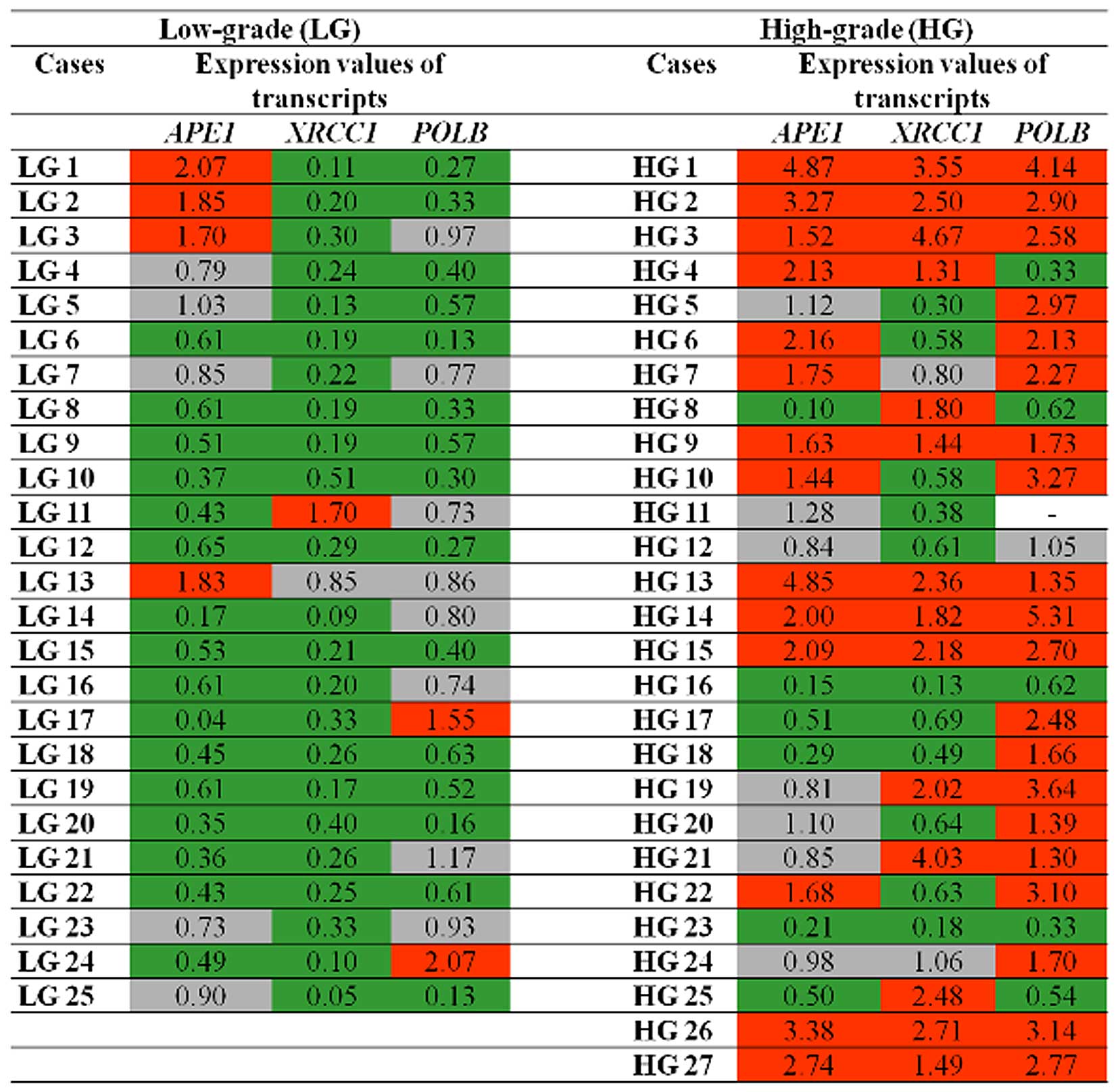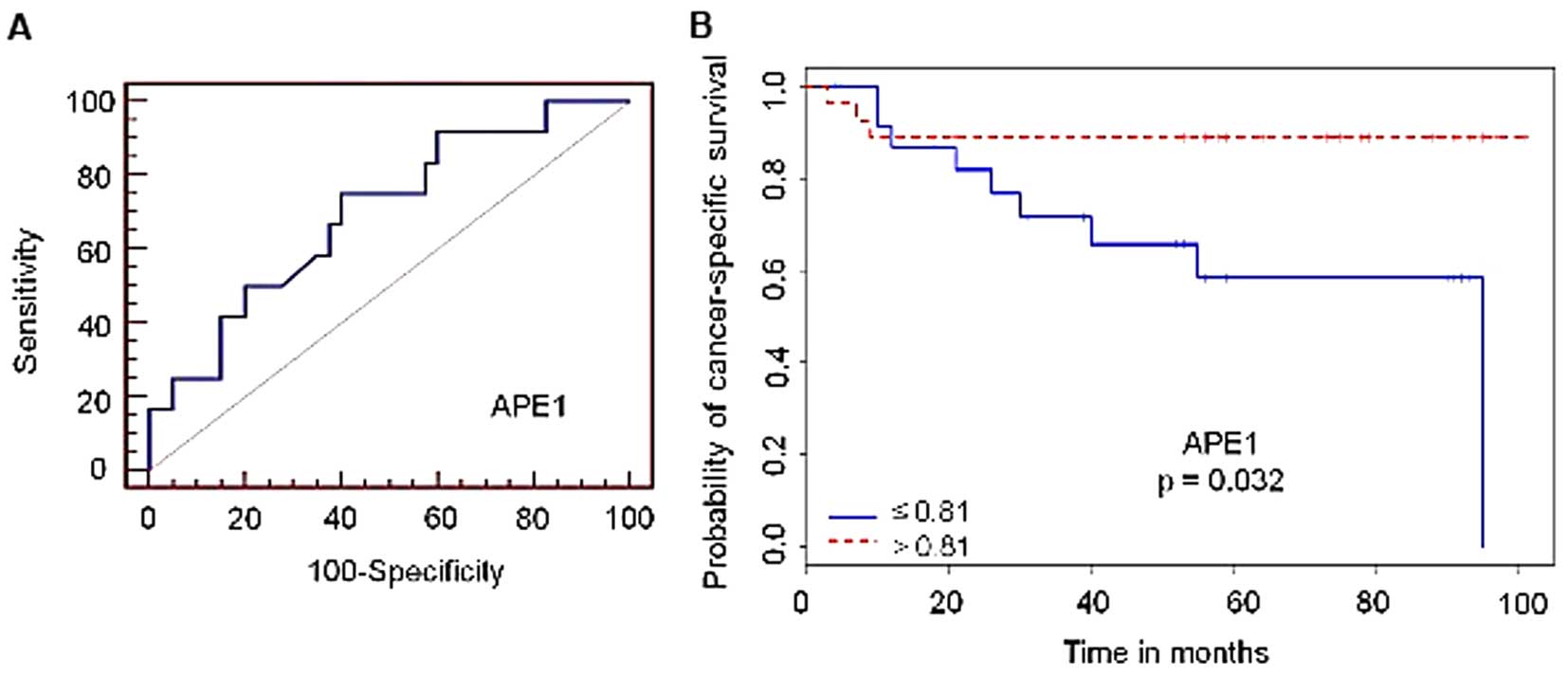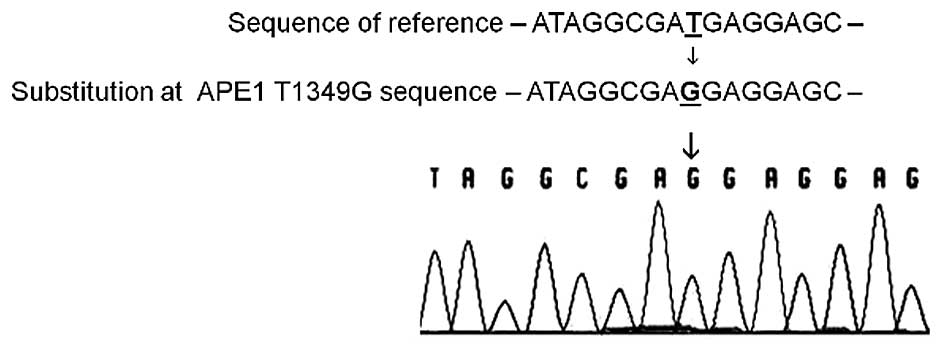|
1
|
Siegel R, Naishadham D and Jemal A: Cancer
statistics, 2013. CA Cancer J Clin. 63:11–30. 2013. View Article : Google Scholar : PubMed/NCBI
|
|
2
|
Knowles MA: Molecular subtypes of bladder
cancer: Jekyll and Hyde or chalk and cheese? Carcinogenesis.
27:361–373. 2006. View Article : Google Scholar
|
|
3
|
DeGraff DJ, Cates JM, Mauney JR, Clark PE,
Matusik RJ and Adam RM: When urothelial differentiation pathways go
wrong: Implications for bladder cancer development and progression.
Urol Oncol. 31:802–811. 2013. View Article : Google Scholar
|
|
4
|
Castillo-Martin M, Domingo-Domenech J,
Karni-Schmidt O, Matos T and Cordon-Cardo C: Molecular pathways of
urothelial development and bladder tumorigenesis. Urol Oncol.
28:401–408. 2010. View Article : Google Scholar : PubMed/NCBI
|
|
5
|
Burger M, Catto JW, Dalbagni G, Grossman
HB, Herr H, Karakiewicz P, Kassouf W, Kiemeney LA, La Vecchia C,
Shariat S, et al: Epidemiology and risk factors of urothelial
bladder cancer. Eur Urol. 63:234–241. 2013. View Article : Google Scholar
|
|
6
|
Kim WJ and Bae SC: Molecular biomarkers in
urothelial bladder cancer. Cancer Sci. 99:646–652. 2008. View Article : Google Scholar : PubMed/NCBI
|
|
7
|
Shariat SF, Tokunaga H, Zhou J, Kim J,
Ayala GE, Benedict WF and Lerner SP: p53, p21, pRB, and p16
expression predict clinical outcome in cystectomy with bladder
cancer. J Clin Oncol. 22:1014–1024. 2004. View Article : Google Scholar : PubMed/NCBI
|
|
8
|
Yang J, Xu Z, Li J, Zhang R, Zhang G, Ji
H, Song B and Chen Z: XPC epigenetic silence coupled with p53
alteration has a significant impact on bladder cancer outcome. J
Urol. 184:336–343. 2010. View Article : Google Scholar : PubMed/NCBI
|
|
9
|
Yan C, Kim YW, Ha YS, Kim IY, Kim YJ, Yun
SJ, Moon SK, Bae SC and Kim WJ: RUNX3 methylation as a predictor
for disease progression in patients with non-muscle-invasive
bladder cancer. J Surg Oncol. 105:425–430. 2012. View Article : Google Scholar : PubMed/NCBI
|
|
10
|
Hoeijmakers JH: Genome maintenance
mechanisms for preventing cancer. Nature. 411:366–374. 2001.
View Article : Google Scholar : PubMed/NCBI
|
|
11
|
Christmann M, Tomicic MT, Roos WP and
Kaina B: Mechanisms of human DNA repair: An update. Toxicology.
193:3–34. 2003. View Article : Google Scholar : PubMed/NCBI
|
|
12
|
Wood RD, Mitchell M and Lindahl T: Human
DNA repair genes, 2005. Mutat Res. 577:275–283. 2005. View Article : Google Scholar : PubMed/NCBI
|
|
13
|
Zharkov DO: Base excision DNA repair. Cell
Mol Life Sci. 65:1544–1565. 2008. View Article : Google Scholar : PubMed/NCBI
|
|
14
|
Figueroa JD, Malats N, Real FX, Silverman
D, Kogevinas M, Chanock S, Welch R, Dosemeci M, Tardón A, Serra C,
et al: Genetic variation in the base excision repair pathway and
bladder cancer risk. Hum Genet. 121:233–242. 2007. View Article : Google Scholar : PubMed/NCBI
|
|
15
|
Fritz G: Human APE/Ref-1 protein. Int J
Biochem Cell Biol. 32:925–929. 2000. View Article : Google Scholar : PubMed/NCBI
|
|
16
|
Kubota Y, Nash RA, Klungland A, Schär P,
Barnes DE and Lindahl T: Reconstitution of DNA base excision-repair
with purified human proteins: Interaction between DNA polymerase
beta and the XRCC1 protein. EMBO J. 15:6662–6670. 1996.PubMed/NCBI
|
|
17
|
Campalans A, Marsin S, Nakabeppu Y,
O'connor TR, Boiteux S and Radicella JP: XRCC1 interactions with
multiple DNA glycosylases: A model for its recruitment to base
excision repair. DNA Repair (Amst). 4:826–835. 2005. View Article : Google Scholar
|
|
18
|
Allinson SL, Dianova II and Dianov GL: DNA
polymerase beta is the major dRP lyase involved in repair of
oxidative base lesions in DNA by mammalian cell extracts. EMBO J.
20:6919–6926. 2001. View Article : Google Scholar : PubMed/NCBI
|
|
19
|
Dyrskjøt L, Thykjaer T, Kruhøffer M,
Jensen JL, Marcussen N, Hamilton-Dutoit S, Wolf H and Orntoft TF:
Identifying distinct classes of bladder carcinoma using
microarrays. Nat Genet. 33:90–96. 2003. View Article : Google Scholar
|
|
20
|
Mengual L, Burset M, Ars E, Lozano JJ,
Villavicencio H, Ribal MJ and Alcaraz A: DNA microarray expression
profiling of bladder cancer allows identification of noninvasive
diagnostic markers. J Urol. 182:741–748. 2009. View Article : Google Scholar : PubMed/NCBI
|
|
21
|
Damrauer JS, Hoadley KA, Chism DD, Fan C,
Tiganelli CJ, Wobker SE, Yeh JJ, Milowsky MI, Iyer G, Parker JS, et
al: Intrinsic subtypes of high-grade bladder cancer reflect the
hallmarks of breast cancer biology. Proc Natl Acad Sci USA.
111:3110–3115. 2014. View Article : Google Scholar : PubMed/NCBI
|
|
22
|
Bustin SA, Benes V, Garson JA, Hellemans
J, Huggett J, Kubista M, Mueller R, Nolan T, Pfaffl MW, Shipley GL,
et al: The MIQE guidelines: Minimum information for publication of
quantitative real-time PCR experiments. Clin Chem. 55:611–622.
2009. View Article : Google Scholar : PubMed/NCBI
|
|
23
|
Gecit I, Aslan M, Gunes M, Pirincci N,
Esen R, Demir H and Ceylan K: Serum prolidase activity, oxidative
stress, and nitric oxide levels in patients with bladder cancer. J
Cancer Res Clin Oncol. 138:739–743. 2012. View Article : Google Scholar : PubMed/NCBI
|
|
24
|
Kumar B, Koul S, Khandrika L, Meacham RB
and Koul HK: Oxidative stress is inherent in prostate cancer cells
and is required for aggressive phenotype. Cancer Res. 68:1777–1785.
2008. View Article : Google Scholar : PubMed/NCBI
|
|
25
|
Michiels S, Laplanche A, Boulet T, Dessen
P, Guillonneau B, Méjean A, Desgrandchamps F, Lathrop M, Sarasin A
and Benhamou S: Genetic polymorphisms in 85 DNA repair genes and
bladder cancer risk. Carcinogenesis. 30:763–768. 2009. View Article : Google Scholar : PubMed/NCBI
|
|
26
|
Narter KF, Ergen A, Agaçhan B, Görmüs U,
Timirci O and Isbir T: Bladder cancer and polymorphisms of DNA
repair genes (XRCC1, XRCC3, XPD, XPG, APE1, hOGG1). Anticancer Res.
29:1389–1393. 2009.PubMed/NCBI
|
|
27
|
Zhuo W, Zhang L, Cai L, Zhu B and Chen Z:
XRCC1 Arg399Gln polymorphism and bladder cancer risk: Updated
meta-analyses based on 5767 cases and 6919 controls. Exp Biol Med
(Maywood). 238:66–76. 2013. View Article : Google Scholar
|
|
28
|
Weaver DA, Crawford EL, Warner KA,
Elkhairi F, Khuder SA and Willey JC: ABCC5, ERCC2, XPA and XRCC1
transcript abundance levels correlate with cisplatin
chemoresistance in non-small cell lung cancer cell lines. Mol
Cancer. 4:182005. View Article : Google Scholar : PubMed/NCBI
|
|
29
|
Albertella MR, Lau A and O'Connor MJ: The
overexpression of specialized DNA polymerases in cancer. DNA Repair
(Amst). 4:583–593. 2005. View Article : Google Scholar
|
|
30
|
Starcevic D, Dalal S and Sweasy JB: Is
there a link between DNA polymerase beta and cancer? Cell Cycle.
3:998–1001. 2004. View Article : Google Scholar : PubMed/NCBI
|
|
31
|
Osheroff WP, Jung HK, Beard WA, Wilson SH
and Kunkel TA: The fidelity of DNA polymerase beta during
distributive and processive DNA synthesis. J Biol Chem.
274:3642–3650. 1999. View Article : Google Scholar : PubMed/NCBI
|
|
32
|
Bergoglio V, Pillaire MJ, Lacroix-Triki M,
Raynaud-Messina B, Canitrot Y, Bieth A, Garès M, Wright M, Delsol
G, Loeb LA, et al: Deregulated DNA polymerase beta induces
chromosome instability and tumorigenesis. Cancer Res. 62:3511–3514.
2002.PubMed/NCBI
|
|
33
|
Bergoglio V, Ferrari E, Hübscher U, Cazaux
C and Hoffmann JS: DNA polymerase beta can incorporate
ribonucleotides during DNA synthesis of undamaged and CPD-damaged
DNA. J Mol Biol. 331:1017–1023. 2003. View Article : Google Scholar : PubMed/NCBI
|
|
34
|
Pillaire MJ, Betous R, Conti C, Czaplicki
J, Pasero P, Bensimon A, Cazaux C and Hoffmann JS: Upregulation of
error-prone DNA polymerases beta and kappa slows down fork
progression without activating the replication checkpoint. Cell
Cycle. 6:471–477. 2007. View Article : Google Scholar : PubMed/NCBI
|
|
35
|
Berquist BR, McNeill DR and Wilson DM III:
Characterization of abasic endonuclease activity of human Ape1 on
alternative substrates, as well as effects of ATP and sequence
context on AP site incision. J Mol Biol. 379:17–27. 2008.
View Article : Google Scholar : PubMed/NCBI
|
|
36
|
Bobola MS, Blank A, Berger MS, Stevens BA
and Silber JR: Apurinic/apyrimidinic endonuclease activity is
elevated in human adult gliomas. Clin Cancer Res. 7:3510–3518.
2001.PubMed/NCBI
|
|
37
|
Kelley MR, Cheng L, Foster R, Tritt R,
Jiang J, Broshears J and Koch M: Elevated and altered expression of
the multifunctional DNA base excision repair and redox enzyme
Ape1/ref-1 in prostate cancer. Clin Cancer Res. 7:824–830.
2001.PubMed/NCBI
|
|
38
|
Moore DH, Michael H, Tritt R, Parsons SH
and Kelley MR: Alterations in the expression of the DNA
repair/redox enzyme APE/ref-1 in epithelial ovarian cancers. Clin
Cancer Res. 6:602–609. 2000.PubMed/NCBI
|
|
39
|
Robertson KA, Bullock HA, Xu Y, Tritt R,
Zimmerman E, Ulbright TM, Foster RS, Einhorn LH and Kelley MR:
Altered expression of Ape1/ref-1 in germ cell tumors and
overexpression in NT2 cells confers resistance to bleomycin and
radiation. Cancer Res. 61:2220–2225. 2001.PubMed/NCBI
|
|
40
|
Zhang Y, Wang J, Xiang D, Wang D and Xin
X: Alterations in the expression of the apurinic/apyrimidinic
endonuclease-1/redox factor-1 (APE1/Ref-1) in human ovarian cancer
and indentification of the therapeutic potential of APE1/Ref-1
inhibitor. Int J Oncol. 35:1069–1079. 2009.PubMed/NCBI
|
|
41
|
Sak SC, Harnden P, Johnston CF, Paul AB
and Kiltie AE: APE1 and XRCC1 protein expression levels predict
cancer-specific survival following radical radiotherapy in bladder
cancer. Clin Cancer Res. 11:6205–6211. 2005. View Article : Google Scholar : PubMed/NCBI
|
|
42
|
Gu D, Wang M, Wang S, Zhang Z and Chen J:
The DNA repair gene APE1 T1349G polymorphism and risk of gastric
cancer in a Chinese population. PLoS One. 6:e289712011. View Article : Google Scholar : PubMed/NCBI
|
|
43
|
Hadi MZ, Coleman MA, Fidelis K,
Mohrenweiser HW and Wilson DM III: Functional characterization of
Ape1 variants identified in the human population. Nucleic Acids
Res. 28:3871–3879. 2000. View Article : Google Scholar : PubMed/NCBI
|
|
44
|
Au WW, Salama SA and Sierra-Torres CH:
Functional characterization of polymorphisms in DNA repair genes
using cytogenetic challenge assays. Environ Health Perspect.
111:1843–1850. 2003. View Article : Google Scholar : PubMed/NCBI
|
|
45
|
Gu D, Wang M, Wang M, Zhang Z and Chen J:
The DNA repair gene APE1 T1349G polymorphism and cancer risk: A
meta-analysis of 27 case-control studies. Mutagenesis. 24:507–512.
2009. View Article : Google Scholar : PubMed/NCBI
|
|
46
|
Liu C, Yin Q, Li L, Zhuang YZ, Zu X and
Wang Y: APE1 Asp148Glu gene polymorphism and bladder cancer risk: A
meta-analysis. Mol Biol Rep. 40:171–176. 2013. View Article : Google Scholar
|
|
47
|
Sweasy JB, Lang T and DiMaio D: Is base
excision repair a tumor suppressor mechanism? Cell Cycle.
5:250–259. 2006. View Article : Google Scholar : PubMed/NCBI
|
|
48
|
Kunath F, Krause SF, Wullich B, Goebell
PJ, Engehausen DG, Burger M, Meerpohl JJ and Keck B: Bladder cancer
- the neglected tumor: A descriptive analysis of publications
referenced in MEDLINE and data from the register
ClinicalTrials.gov. BMC Urol. 13:562013. View Article : Google Scholar
|

















